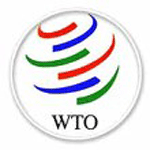Tough demands on Yemen by the WTO
Published on Thu, 2013-11-28 23:19
It is unconscionable to require Yemen to fully implement a sophisticated regime of intellectual property protection as a condition to trade internationally, argue civil society organizations from around the world in a letter to the World Trade Organization. Yemen is one of the poorest countries in the Arab region. It has extremely weak infrastructure, and underdeveloped scientific and innovative capacities. Yemen faces massive challenges in ensuring its population has access to education, health and other basic services as the country emerges from a period of civil unrest. The accession of Yemen to the WTO will be decided in the coming ministerial meeting of the trade organization in Bali, Indonesia. Strict adherence to the protection of intellectual property should not be a precondition, argue the signatories.
28th November 2013
Mr. Roberto Carvalho de Azevêdo, cc: H.E. Mr. Shahid BASHIR,
Dear Mr. Azevêdo, The undersigned organizations are writing to express concerns regarding intellectual property commitments being forced on Yemen as part of its WTO accession package that will be presented for formal adoption, to the 9th WTO Ministerial Conference in Bali, 3-6 December 2013. We understand that as part of its accession terms Yemen is required to fully implement the WTO-Agreement on Trade-Related Aspects of Intellectual Property Rights (TRIPS) by 31 December 2016. This contradicts Paragraph 18 of the 2012 Accession Guidelines which explicitly reaffirms “that the Special and Differential Treatment, as set out in the Multilateral Trade Agreements, Ministerial Decisions, and other relevant WTO legal instruments, shall be applicable to all acceding LDCs from the date of entry into force of their respective Protocols of Accession”.1 Thus paragraph 18 of the 2012 Accession Guidelines automatically entitles acceding LDCs to transition periods granted pursuant to Article 66.1 of the TRIPS Agreement.2 Article 66.1, is one of the most important Special and Differential provisions contained in the TRIPS Agreement, as it grants LDCs the flexibility they need to overcome their socio-economic constraints and to develop a viable technological base. On 11 June 2013, the TRIPS Council adopted a decision pursuant to Article 66.1 of the Agreement, to extend the LDC TRIPS transition period until 1 July 2021. According to this Decision, LDCs “shall not be required to apply the provisions of the Agreement, other than Articles 3, 4 and 5, until 1 July 2021”. The Decision also allows further extensions beyond 1 July 2021. The Decision also expressly recognizes the right of WTO LDC Members to make full use of the flexibilities provided by the TRIPS Agreement to address their needs. This includes the option of rolling back/undoing TRIPS consistent intellectual property (IP) protections. Requiring Yemen to be TRIPS compliant by the end of 2016 is a violation of the 2012 Accession Guidelines that were adopted by the WTO General Council and that recognized the entitlement of acceding countries to Special and Differential Treatment provisions that underpin the WTO architecture. For countries to benefit from full TRIPS compliance certain basic socio-economic conditions should exist in particular a significant market, sufficient capital, qualified and skilled personnel at the firm level, innovation-oriented entrepreneurs, as well as a solid scientific and technological base. As an LDC, these conditions obviously do not exist in Yemen. Yemen is one of the poorest countries in the Arab region, with very slow progress towards attaining the Millennium Development Goals (MDGs) with 32% of the population living in severe poverty. It has extremely weak infrastructure3, and underdeveloped scientific and innovative capacities. Yemen faces massive challenges in ensuring its population has access to education, health and other basic services.4 The economy is also caught in a jobless slow growth cycle leading to stagnant per capita incomes and rising levels of unemployment. Moreover, Yemen is facing a humanitarian crisis with widespread hunger, chronic malnutrition and health problems as the country emerges from a period of civil unrest. Given this situation, it is unconscionable for the WTO to require Yemen to fully implement the TRIPS Agreement by 2016. It is also damaging to WTO’s credibility that it is failing to abide by its own rules, in particular paragraph 18 of the 2012 Accession Guidelines. Thus we urge you to take immediate measures to rectify the situation by issuing a statement confirming that the TRIPS Council Decision adopted on 11 June 2013 is applicable to Yemen and it is under no obligation to implement the TRIPS Agreement until 1 July 2021 or later if a further extension is granted pursuant to Article 66.1 of the TRIPS Agreement. We also urge you to ensure that all LDC countries that are in the process of acceding to the WTO are accorded transition periods consistent with TRIPS Council decisions concerning Article 66.1. In conclusion we stress that any attempt to weaken or to refuse LDCs rights that they are entitled to will damage the credibility of the WTO and will show that the multilateral trading system does not work in the interests of the poorest and most vulnerable populations of the international community. Even worse, such a condition will confine Yemen to technological underdevelopment and to potential overpayment for IP-protected commodities for years to come thereby imposing unnecessary hardship and human rights deprivations on some of the poorest people in the world. Notes: See the list of Signatories here. |
SUSCRIBE TO OUR NEWSLETTER



